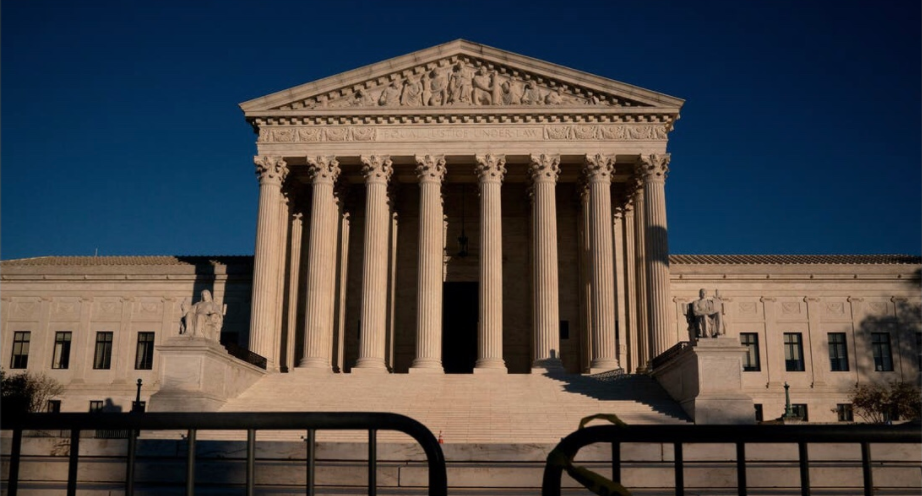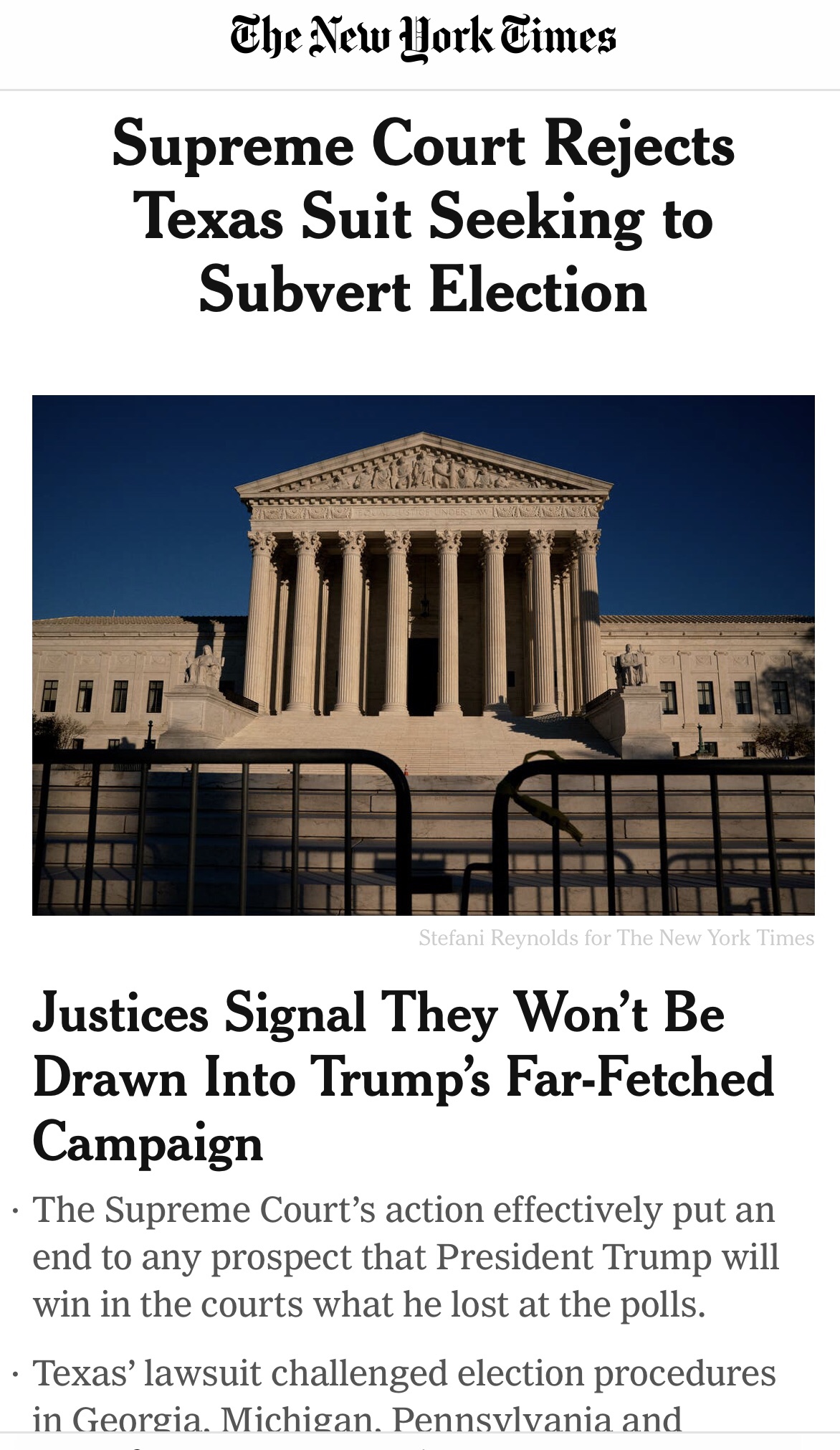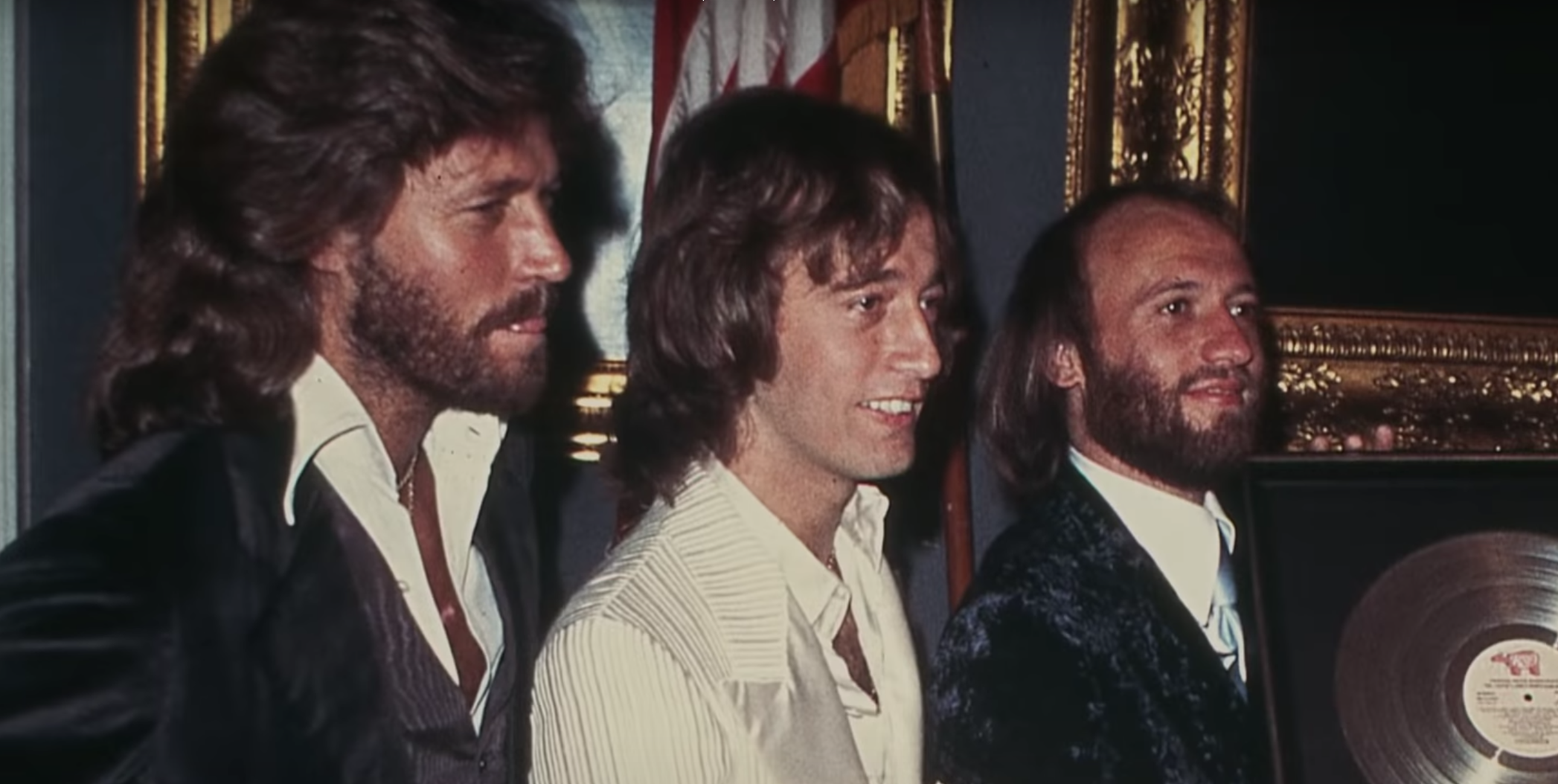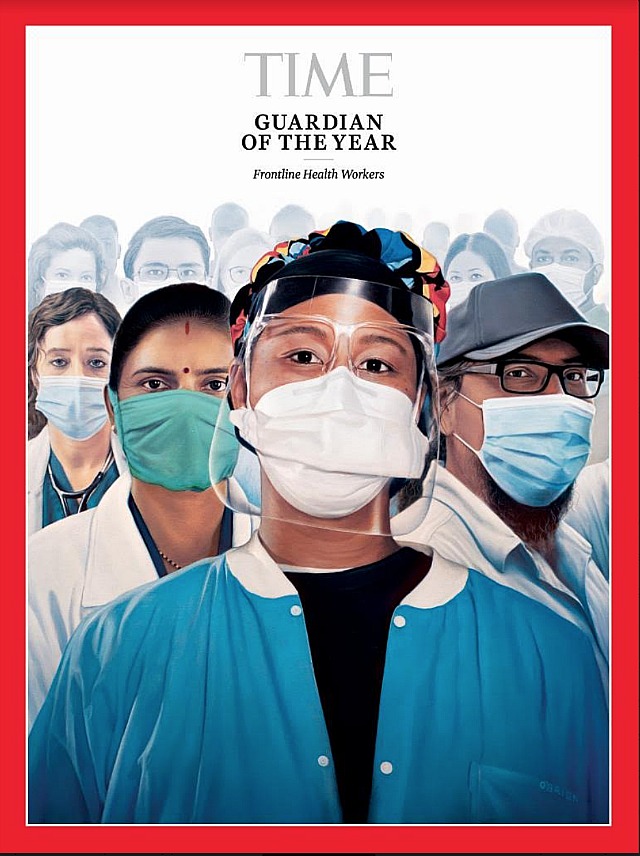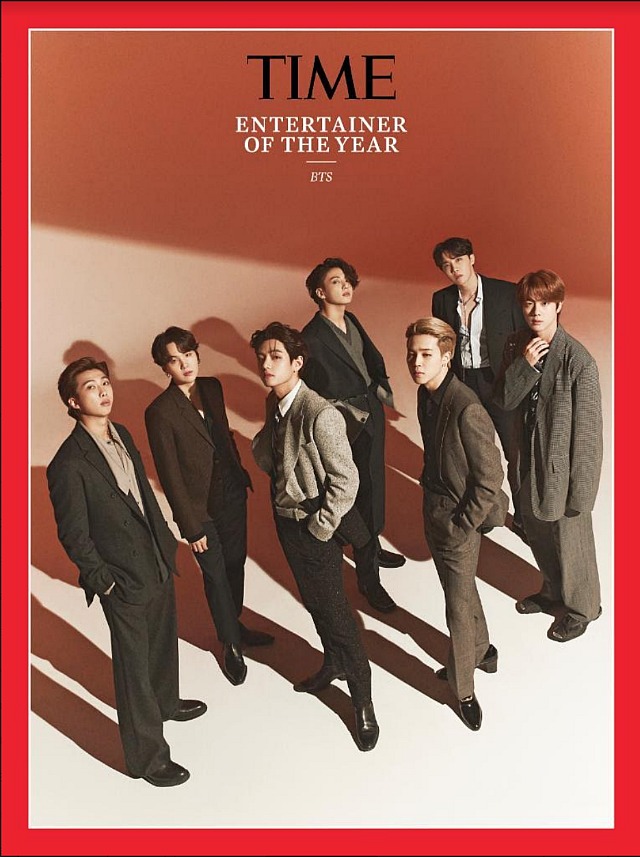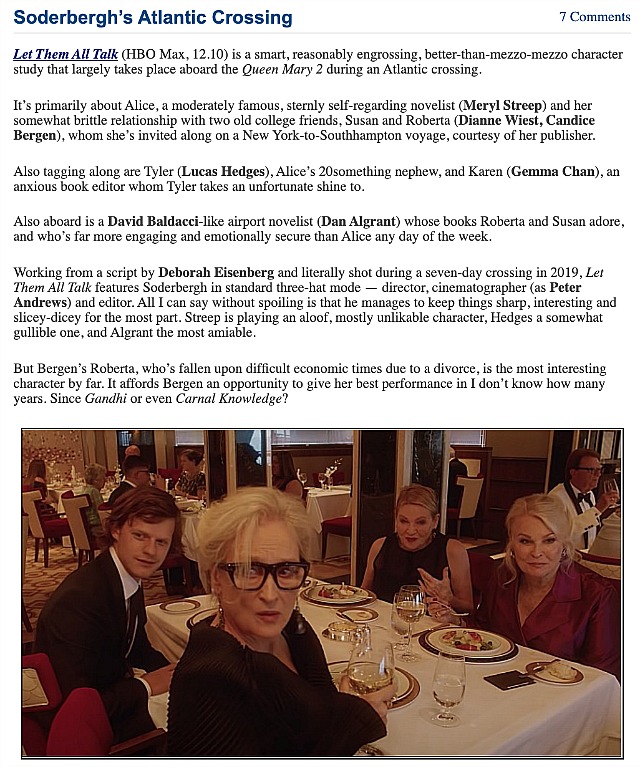Please tell me how you feel after reading Peter Suderman‘s “This Blockbuster Is Coming to a Living Room Near You,” a 12.11 opinion piece in the N.Y. Times.
If you’re at all human and north of 40, Suderman’s article will almost certainly usher in the gloom. It might even provoke stomach acid or the dry heaves. I’ve calmed down since I read it, but somewhere in the middle I was dreaming, absurdly, about running into Suderman and going all Jimmy Cagney on his ass.
There’s nothing in Suderman’s piece that’s especially new. The pandemic has all but killed theatrical, and post-vaccine there’ll be no putting the toothpaste back into the tube. Yes, theatrical has been slowly dying for years. Right now it seems as if middle-class, middle-budgeted, intended for theatrical films like Spotlight, Moneyball, Birdman, 12 Years A Slave, Call Me By Your Name, Drive, The Social Network, The Lighthouse, Zero Dark Thirty and Manchester By The Sea are becoming (or have become) all but extinct. A decade hence movie theatres will soon be regarded in the same light as Broadway theatre. Only elites will return to cinemas after the all-clear sign is given…what, nine months hence?
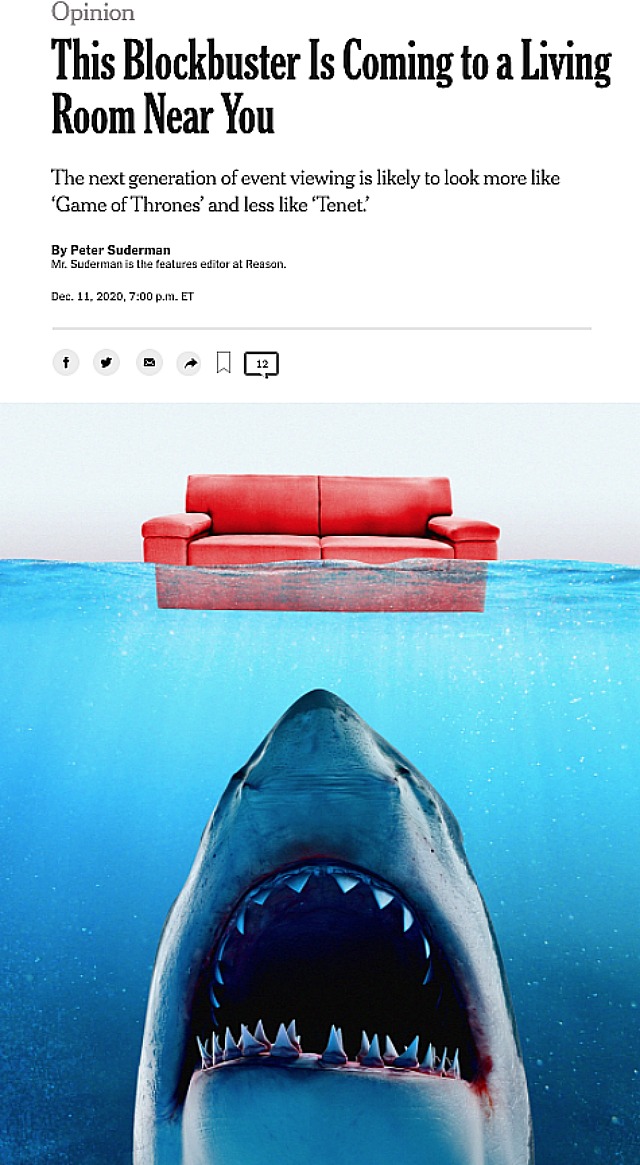
Before this year the only way to really savor big-screen films properly was at film festivals, at least in my view. That, at least, was something to hold onto. Right now the only safe way to go is with my 65-inch Sony 4K HDR. Then again I love being able to stream just about anything in HD or 4K these days…in that sense we’re living in a golden age. But man, I hated Silberman’s essay all the same. Or more precisely, I hated the subhead — “The next generation of event viewing is likely to look more like Game of Thrones and less like Tenet.” My pulse was racing. I was seething.
Bottom line: Suderman’s all-couches, all-streaming scenario reads like a reasonably candid assessment of what’s happened to Hollywood and exhibition over the last 10 or 11 months, and where we’re all probably headed. He’s not “wrong” but tone of the piece certainly flirts with my idea of smarmy and smug. All I could think about was Chryssie Hynde singing “My City Was Gone.”
Suderman excerpt: “The move by Warner Bros. means that even if anxiety about Covid-19 diminishes, some of the biggest movies of 2021 will no longer be exclusive theatrical engagements. Some viewers who might have ventured out to a multiplex will undoubtedly choose to stay home. And that, in turn, is another reason for those of us who love seeing movies in theaters to worry that when the pandemic ends, the theatrical experience of yesteryear will be gone.
“Theaters won’t disappear completely, but they are more likely to become rare first-class events rather than everyday experiences for the masses. To some extent, this was already happening, with comfier seating and more upscale concessions, and ticket prices rising in tandem. In the aftermath of the pandemic, moviegoing, once a Saturday-afternoon time waster and the go-to option for an inexpensive date, could become a comparatively rarefied luxury.
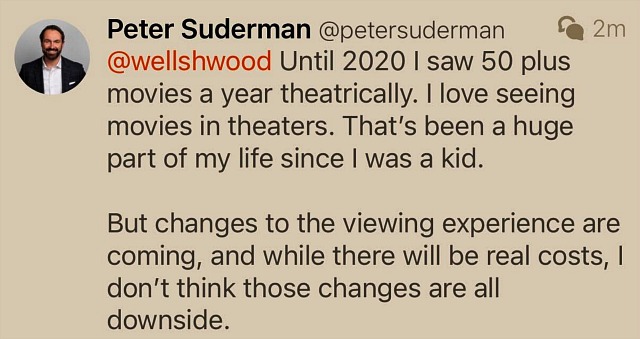
Peter Suderman’s reply was tweeted less than five minutes after this piece was posted.



